When people first become aware of Classical Education in a homeschool setting, whatever version (The Well Trained Mind, Charlotte Mason, Classical Conversations, etc.), they usually ask "What do you have to do to be a classical homeschooler?"
Another version of this question is, "What do you have to add to your school day?" (And this is usually asked with a sense of dread because they'll confess something like, "We're already not getting everything done...")
I am not an expert. I do not give seminars or sell curriculum. But, as a homeschool graduate myself and a homeschooling mother of six, I want to take a stab at answering this question. Here's my first response to people who ask, "What do I have to add to our day to be a classical homeschooler?"
Classical Homeschooling is not about adding anything, necessarily.
What if we approach this a different way?
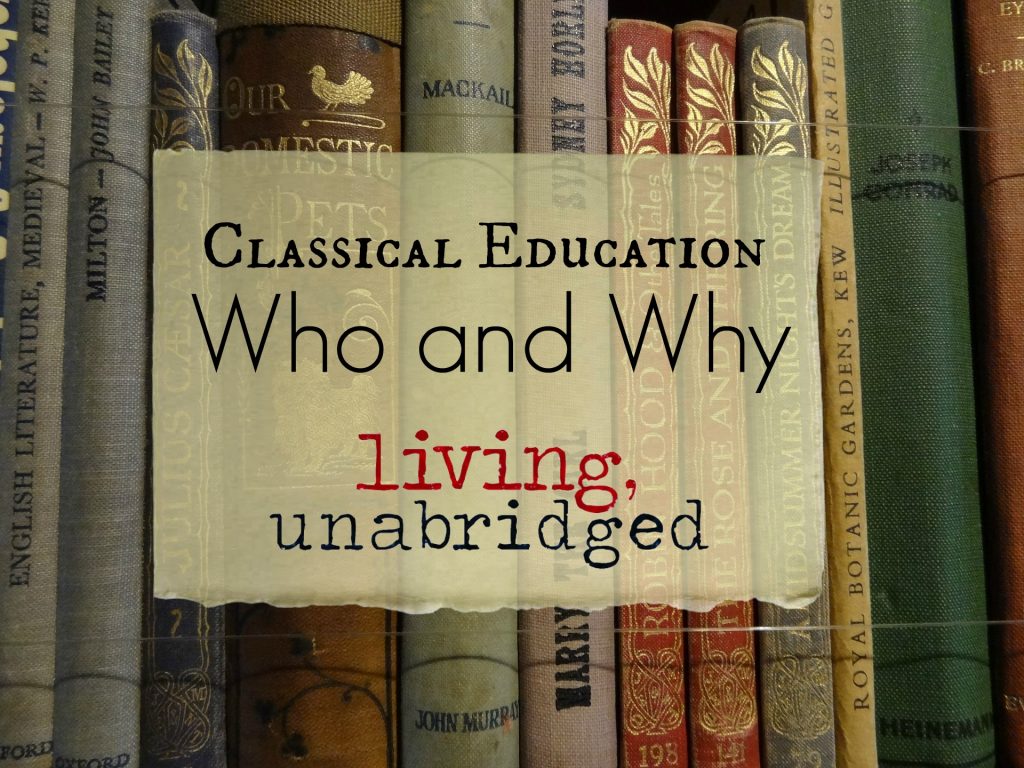 What if Classical Education isn't about What, but Who?
What if Classical Education isn't about What, but Who?
When we move from educating our children in mainstream ways (whether government schools or using a more familiar textbook approach to homeschooling), we have to ask ourselves for whom we are doing this.
Here are my answers for the "Who" question:
- For God. If you are a Christian you have to be convinced that what we are doing has eternal significance in addition to the earthly value.
- For our children. Classically educating means we treat our children as humans made in the image of God. We respect their intrinsic worth, while recognizing that children need guidance and correction to grow properly.
- For ourselves. The blessing of a classical education extends to mom. Because whether you buy into the concept of "Scholé" or not, a true classical education is not designed to burden the parent beyond what he / she / they are able to bear.
- For our culture. Classical education is about restoring lost things. It isn't just so our children will amaze others with their Latin Declensions or lists of grammar rules they've memorized. It isn't primarily about test scores. It is about raising moral and wise citizens who willingly and sacrificially lead and serve their fellow humans.
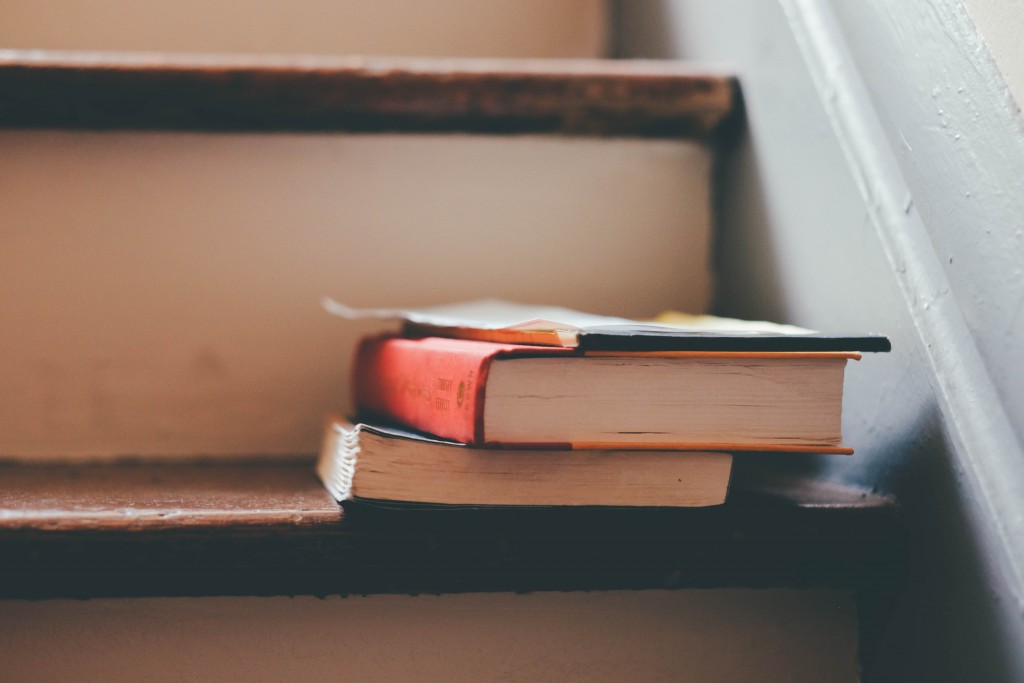 What if Classical Education isn't about What, but Why?
What if Classical Education isn't about What, but Why?
So, if we know our who, what about the why?
That's a huge question but here are a few things I think most classical home educators believe:
- That classically educating most captures the concept of what it means to be educated. (Both as an historical norm, and as a practical rule.)
- That our children are not automatons to be manufactured or fashioned into cogs of some machine. We believe children are to be trained, nurtured, and enjoyed.
- That there is beauty in challenging ourselves to learn things that may sometimes be difficult (Mathematics, Latin, etc.)
- That there is relief in giving up the idea that we must cover an infinite variety of subjects and that we can instead pursue restful but deep learning based on the seven liberal arts.
- That parents know their children and their homes best and that we can equip ourselves to teach our children. This means, while we may take guidance from authorities both past and present, we will ultimately decide what we must do and we will not embrace a false guilt for not doing this homeschooling thing exactly like someone else does.
Even if you think the volumes of material Charlotte Mason wrote are one step removed from Holy Writ, you will not be able do everything she wrote about. And you will not be able to design a homeschool exactly like the PNEU schools she set up. Designing a home education that looks exactly like some other non-homeschool is an exercise in futility.
So many homeschoolers are comparing themselves to standards they see in books or on blogs and they are always falling short. This leads to discouragement and sometimes to abandoning the entire homeschooling concept. It would be far better to throw out a curriculum that isn't working (or a topic of study that's constantly leading to tears) than to abandon the entire homeschooling experiment.
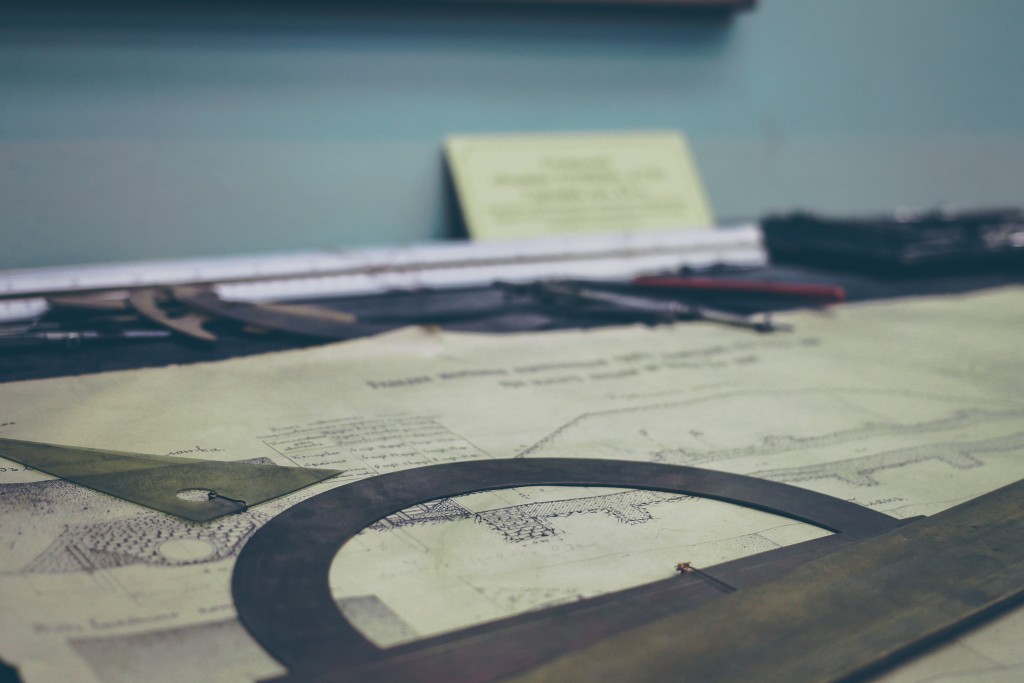 So, why do I self identify as a Classical Homeschooler? (Even though I call our style "Relaxed Classical"?)
So, why do I self identify as a Classical Homeschooler? (Even though I call our style "Relaxed Classical"?)
Because I believe that one of the biggest changes we might make toward classically educating our children is by subtracting some things from our homeschool life, not by adding them.
Because I believe that when we add something, we do so for carefully considered reasons. (And the reason "Because other homeschool moms who say they're classical homeschoolers are doing it" is not necessarily a satisfactory reason.)
Because I believe that the pursuit of truth, goodness, and beauty isn't just something I try to impart to my children in an eight hour school day. This is a lifelong, worthy, and gratifying way to live an abundant life.
Because I want to raise children who have their sense of wonder and curiosity intact. And I want to be a person myself who lives a life of passionate curiosity and wonder about the world and universe we inhabit.
The biggest mindset adjustment might just be the fact that I am the one who must commit to study. So I will continue to attend the seminars and read the books and blogs, and ask lots of questions so that I am better equipped to raise children who become lifelong autodidacts. Sometimes that will mean adding something that was missing, but often it will mean pruning away something that hindered our larger goals.
I am not saying that the What and the How are not important. But the Who and the Why are the reasons I call myself a classical educator. The what and the how are a little more flexible and will vary from one classical educator to another (although I do believe there are some commonalities).
So much of what is written (in books or blogs) about homeschooling is answer a what or how question. (Although some do branch out into asking when.) There's a time and place for that. I'll even be posting about those questions here, I'm sure. But I honestly do believe that Who and Why are the first questions we need to ask. And I believe that many other things will be easier to sort out if we get those answers right.
Want to know more about what we've subtracted from our homeschool and what we've added? I plan to post more about this very soon. Ready to read more about this topic? I'll list some of my favorite books that have helped me begin to understand what I mean when I say "education" and what that will look like for our family.
Recommended Reading about Classical Education:
The Well Trained Mind by Susan Wise Bauer and Jessie Wise is one of my favorite homeschool resources. I consult it several times a year. It does not dictate what we do, but it does provide some great inspiration. (I feel that I have to say: I'm not a big hero-worship kind of person and I don't really have a guru, but if I had one Susan Wise Bauer would be it.)
The Lost Tools of Learning is an essay by Dorothy Sayers (of Lord Peter Wimsey fame). You can find it various places around the internet but this is a Kindle version. Well written, as you'd expect from Sayers.
The Core by Leigh Bortins is a great introduction to classical education for some.
A Charlotte Mason Education by Catherine Levison is a concise introduction to a famous British classical educator. (I do not consider myself a Charlotte Mason homeschooler but I appreciate many of the principles.)
For the Children's Sake by Susan Schaeffer Macaualay is the book that first introduced me to Charlotte Mason and her branch of classical education. This is beautifully written.
Norms and Nobility by David Hicks is an extra credit read. It's hard to find, expensive on Amazon, and dense to read. But it is so incredibly worth it.
Climbing Parnassus by Tracy Lee Simmons will help explain the return to Latin (and sometimes Greek) that many classical homeschoolers pursue. This book is a well-written apologetic for restoring what it means to be "educated".
If you're looking for blogs or websites about classical education you can find my favorites here: 25+ Must Read Homeschool Blogs.
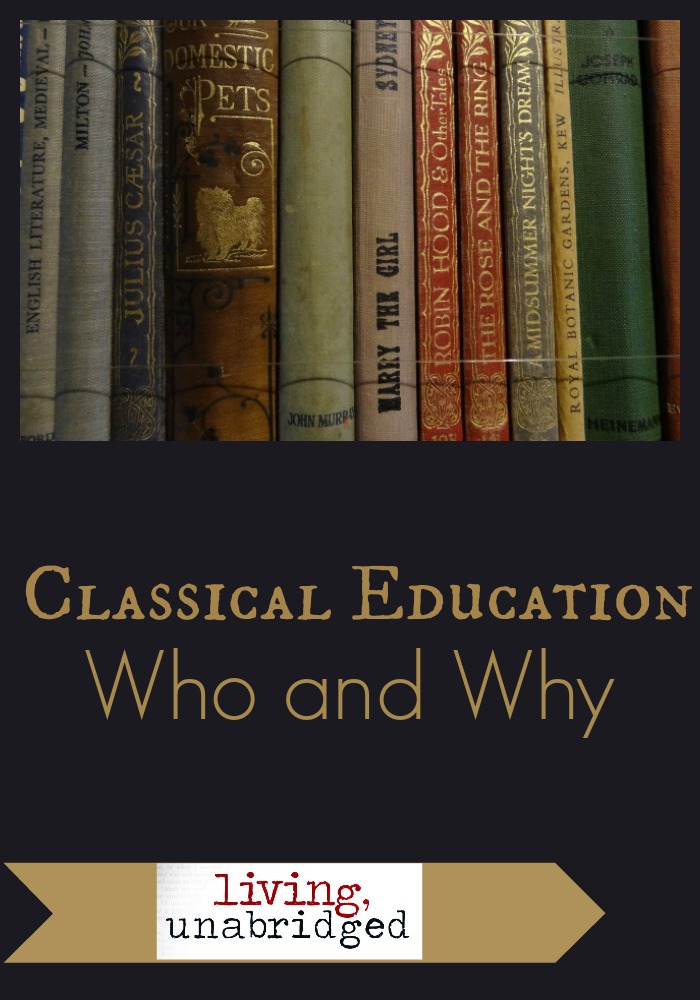
Linking up with:
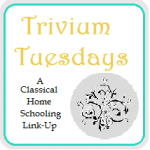
Follow Karen (Living Unabridged)'s board Homeschooling on Pinterest.








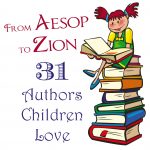

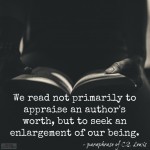



Great post! I love it, and this is especially how I feel about it as well:
"Because I believe that one of the biggest changes we might make toward classically educating our children is by subtracting some things from our homeschool life, not by adding them."
Thanks for sharing :)
I love this! You're right, we need to start with the who and why before we discuss the what and how. The answers to what and how come from the answer to who and why.
Excellent, Karen! Thanks for writing this.